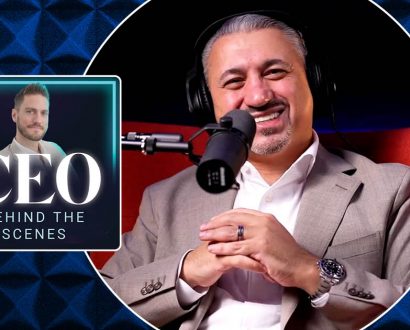Martin Heng is Chair of the board of IDEAS, Lonely Planet’s Accessible Travel Manager, a frequent adventurer and a passionate advocate for accessible travel.
Having recently returned from a mixed-ability sailing trip, Martin shares his insights into how businesses may have something to gain from becoming inclusive and disability-aware.
Following his trip, I spoke with Martin about accessible tourism, travelling as a person with disability, and how travel providers can harness independent information to implement accessibility and transparency in their organisations.
What has been the impact of the rise of ‘accessible tourism’?
It’s quite noticeable, not just in Australia but worldwide, that accessibility and accessible tourism is coming to the fore. I’ve seen organisations all around the world suddenly realise that it’s not a niche market they’re catering to – it is actually quite a big market. Not only are there a billion disabled people, but they also don’t travel alone.
I’m a prime example of that – I have a wife and three children and if I travel somewhere, I may well be travelling with four others. That’s the ‘multiplier effect’ – that for every person with a disability who’s travelling, there are 3.5 people accompanying them.
Locally, we are getting more traction in terms of people realising that accessibility is not just a human rights issue, but also an economic advantage that people can tap into.
What would you say are the two main things travel providers should keep in mind to be more inclusive to people with disability?
- The first thing to remember is that it’s not all about wheelchairs.
The wheelchair is always under 10% of the disabled population, so it’s not all about ramps and accessible toilets.
You will find that people with a vision impairment usually outnumber those in wheelchairs. People really need to remember that there is a significant disabled population that have vision or hearing impairment – and this population need to be provided for as well.
This can be done very easily and cheaply, for example, by providing large-print, black-and-white printouts of information, menus, etc. Providing something in large print is a cost-effective way of catering to quite a large population, such as people with a vision impairment and an ageing population with long-sight difficulties.
- The other thing that is important but often not done well, is providing information upfront and to realise that it’s not all disabilities need special infrastructure.
A place is not going to be accessible to everybody, but the important thing to remember is people need to know whether it is suitable for them before they go.Businesses and venues need to make that information readily available. Where it is often done well is in places like museums, galleries and public facilities where there’s a button saying ‘accessibility’, a wheelchair icon, or some other obvious way to find out where the necessary information is on the homepage of a website.
If it’s not on the website, train your staff to know what is and isn’t available, because people need the information to make the decision as to whether they are able to visit.
How does IDEAS’ independent information service the community in a travel and accessibility capacity?
I think information is as important as infrastructure. So to have access to that information is absolutely vital when you’re going somewhere.
In my opinion, choice is useless unless it is informed choice and to have informed choice, then you need information.
That’s the business that IDEAS is in, providing unbiased and independent information so people can have an informed choice. It’s not just people with a disability who are contacting IDEAS; it’s also businesses and venues.
So that’s what IDEAS has been doing for more than 30 years – providing information so people can make informed decisions.
Going forward, if that service is no longer funded, there is going to be a huge gap in people’s ability to make informed choices.







